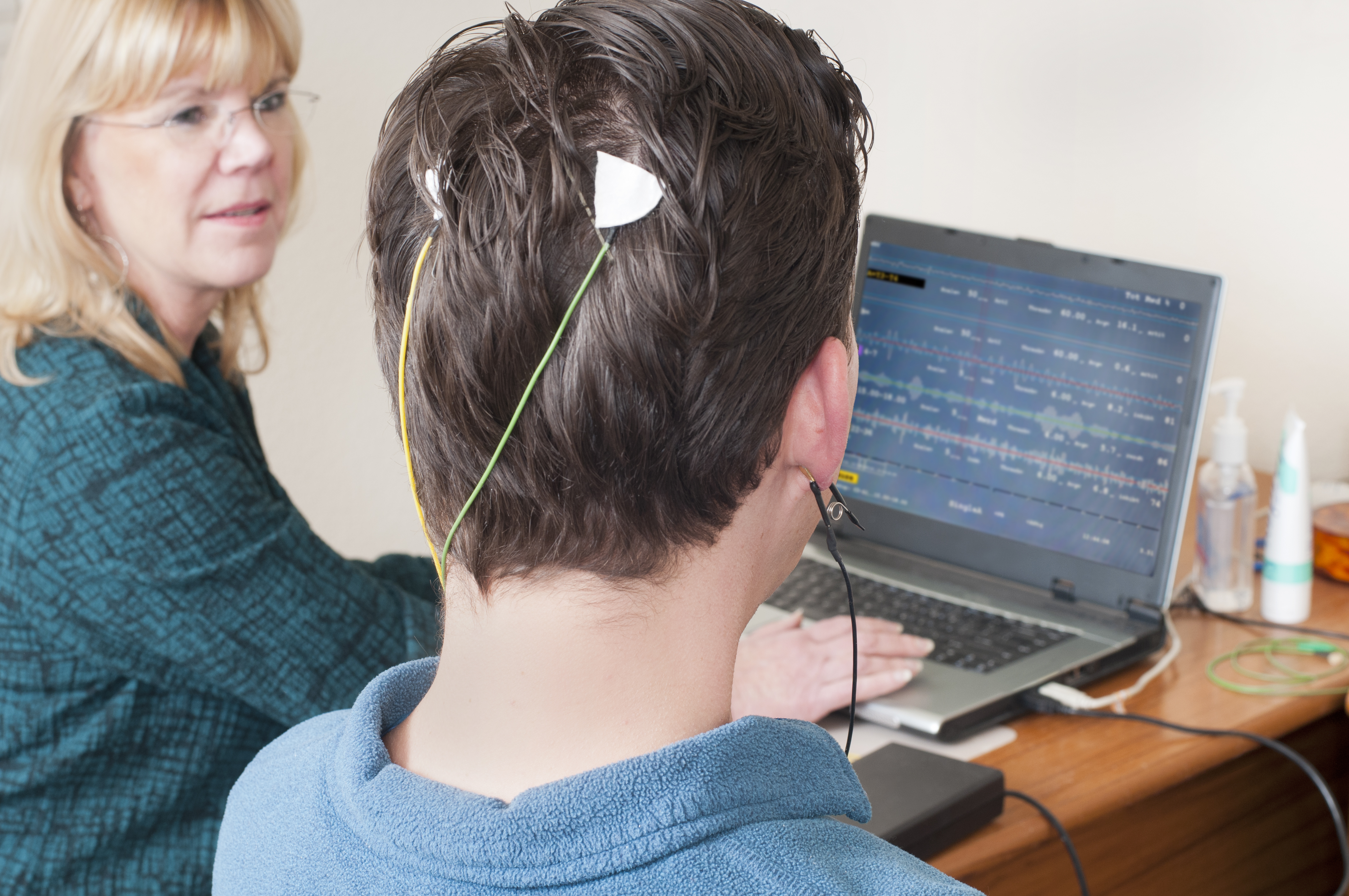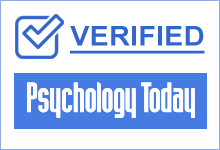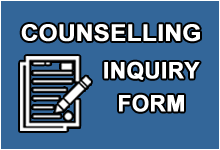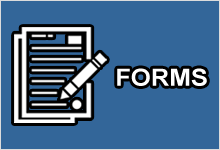Neurofeedback Therapy
What is Neurofeedback?
Neurofeedback is a non-invasive, brain-based healing approach. The brain has the amazing capability to constantly learn new things and new ways of performing. The brain’s natural flexibility and capacity to learn, no matter what the chronological age of the person is, makes neurofeedback the perfect place to begin for a variety of psychological and physiological deficiencies. Neurofeedback gets to the root of the problem, rather than simply treating and trying to manage the symptoms thereof.

The brain’s function can be mapped using electric impulse signals (electroencephalograph), blood flow (hemaencephalograph), and tracking specific chemical responses that are generated when specific areas of the brain are activated. Neurofeedback can take many forms utilizing the above mapping techniques. ISF neurofeedback, or infraslow fluctuation, monitors small shifts (<0.1 Hz) in the oscillatory responses of the brain. By teaching the brain to self-regulate these responses better, patients have seen positive results in the treatment of a variety of issues.
Z-score training and sLORETA are other methods of using known brain maps to pinpoint specific areas of the brain that may be over-, or under-, performing. Once identified, the brain can be trained to address these deficiencies or surpluses so that the dysregulation of the brain’s response can be corrected.
Using other mapping techniques, the brain’s chemical and blood flow responses can be utilized to help identify areas where optimal performance is not being achieved. Once this knowledge is obtained, the brain can be taught to start addressing these areas in a manner which greatly benefits the entire person.
What Can Neurofeedback be Used to Treat?
Neurofeedback has been used to treat a number of human conditions which include, but are certainly not limited to:
- Autism
- Addictions
- Bipolar disorder
- Attention deficit disorder (ADD/ADHD)
- Anxiety
 Depression
Depression- Chronic fatigue syndrome
- Cognitive impairment
- seizures and epilepsy
- Concussion
- Insomnia and Other Sleep-based disorders
- Irritable bowel syndrome (IBS)
- Learning Disabilities
- Migraine
- Obsessive Compulsive Disorder (OCD)
- Post-traumatic Stress Disorder (PTSD)
- Reactive Attachment Disorder
- Other Trauma Brain Injuries.
Studies on Neuro Feedback
Neurofeedback studies go back for decades, with some of the earliest ones dating back to the 1970’s. Patients have reported improved cognitive function, greater emotional and psychological stability, as well as improvements to their sleep patterns after having undergone neurofeedback training.
One of the earlier studies was first published in 1976. A group of college students who expressed high test anxiety were utilized in the study and 100% of the students who underwent some form of neurofeedback expressed a reduction in the anxiety they felt during tests. This was correlated with their personal observations, electrical maps of the brain and later studies have also monitored their chemical responses and seen a direct correlation between neurofeedback and noticeable improvement in their level of anxiety.
In August 2005, and article was published in the Journal of Adult Development, titled “Neurofeedback Treatment of Depression and Anxiety.” In this study, all of the patients who underwent some form of neurofeedback showed a measurable improvement in their overall psychological health and response to certain stimuli.
An earlier study, conducted in 2000 by M.B. Sterman, utilized clinical electroencephalography to identify areas of the brain associated with seizure activity. Neurofeedback training was provided to the patients, all of whom were diagnosed as having severe uncontrolled seizures and epilepsy. The patients participating in the study showed an amazing 70% reduction in their seizure activity.
Neurofeedback studies have not been relegated only to adults, but in recent years children and adolescents have been the topic of study. With the growing number of children, pre-teens, and teens being diagnosed with some form of attention deficit disorder these days, researchers have turned their eyes toward the benefits that might be obtained using neurofeedback as a treatment strategy. One of the most promising studies was documented in 2002 by Monastra. In this study, neurofeedback training proved to be more effective than traditional chemotherapy using Ritalin for patients diagnosed with ADD/ADHD. With only an average of 20 hours of training, all of the participants in the study showed improvement without the use of pharmaceutical agents.
Additional studies have been conducted with persons suffering from post-traumatic stress disorder. Veterans and those who have experienced a traumatic event often have long-lasting problems that up till now have simply been managed with a variety of drugs. Neurofeedback has shown great promised as becoming a viable alternative. Brain training can be used to alter the chemical and electrical response of the brain to the triggering stimuli, providing the affected individuals freedom from past events.
The brain is at the center of all bodily functions and neurofeedback provides the knowledge and access to identify and modify a multitude of physical and psychological disorders.



















